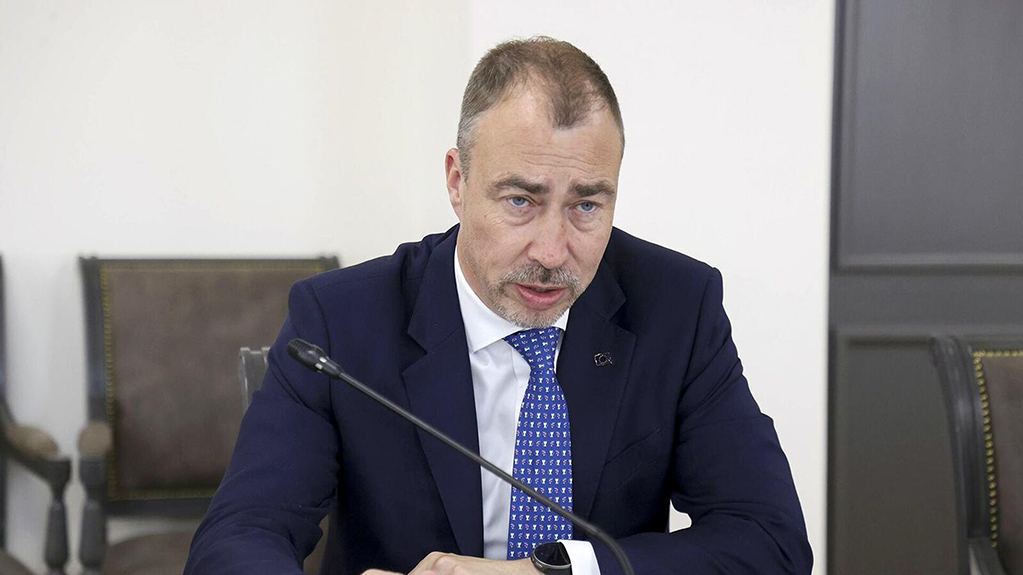Toivo Klaar, the Special Representative of the European Union for the Crisis in the South Caucasus and Georgia, and the co-chair of the international discussions in Geneva, visited the occupied Tskhinvali region. He referred to the authorities of South Ossetia as the de facto authorities and called for the reactivation of checkpoints along the border and the facilitation of their crossing for the local population living near the occupation line.
News
"We need to consider ways to prevent border violations while also creating more opportunities for border crossings. We hope that the Geneva discussions will allocate more time to enhancing the well-being of people on both sides of the border. Typically, dividing lines hinder people from accessing churches, cemeteries, and agricultural lands. We aim for South Ossetia to revert to the pre-Covid era in terms of checkpoint numbers and border crossing ease," stated Klaar.
The co-chairs of the Geneva negotiations arrived in Tskhinvali to discuss the agenda for the upcoming round of talks scheduled for April 4-5. The delegation comprised Cihan Sultanoglu from the United Nations, Toivo Klaar from the European Union, and Viorel Moshanu from the OSCE.
In September 2019, the de facto authorities of South Ossetia closed the checkpoint known as “Razdakhani” (Odzisi) in the direction of Akhalgori. The then de facto president Anatoly Bibilov cited the placement of a police checkpoint in the village of Chorchana in the Khashuri municipality as the reason. The de facto government claims that the Georgian post is located in the occupied territory, specifically in the village of Tsnelisi (Uista), and continues to demand its removal. In August 2022, the Security Council of the self-proclaimed republic permitted residents living near the occupation line to cross the so-called border at the “Razdakhani” and "Pereu" (Perevi) crossings from the 20th to the 30th of each month.















